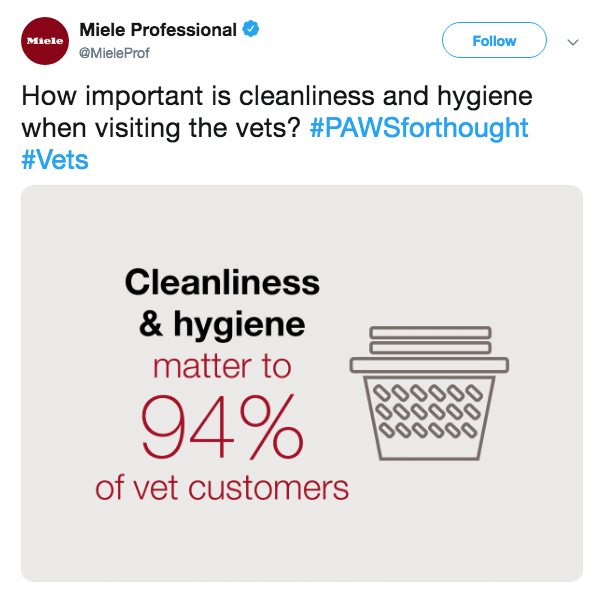Infection control is an important part of daily veterinary life.
While caring for animals may be your number one priority, we’re sure ensuring your examination rooms, as well as your surgery and other working spaces, are germ-free, isn’t too far behind.
Keeping surfaces and utensils sterile is a huge part of infection control, but did you know that how you wash your laundry, such as animal bedding, towels, and even, your uniforms are just as important?
Many vets may know this and may even think that they’re washing their laundry correctly, but in reality, they aren’t
In our experience, the main stumbling block preventing vets from successfully keeping bacteria at bay is their washing machine. These appliances play a really important role in helping vets control infection, but that’s only if they have the right type of washing machine installed in their practice.
Domestic washing machines can never do the job of a commercial washing machine
Commercial washing machines are specifically designed to kill germs and clean large loads, such as bulky, heavily-soiled bedding. While on the other hand, domestic washing machines are designed to deal with just that, domestic laundry.
However, despite this fact, many vets are guilty of using domestic machines to clean their commercial laundry. According to a survey carried out by Miele, 56% of vets believe their washing machines are effective at killing infectious diseases, but 46% of them admit to still using domestic appliances.

How important is cleanliness and hygiene when visiting the vets? #PAWSforthought #Vets pic.twitter.com/DjzLQG5KC3
— Miele Professional (@MieleProf) July 27, 2018
Miele’s recent survey results speak volumes and is an important lesson for all veterinary practices. While domestic and commercial washing machines may look the same, they operate very differently. For instance, domestic appliances don’t wash at the temperatures that are capable of killing germs, however, commercial appliances are geared up to do just that.
Current health guidelines state that contaminated laundry needs to be washed at the following temperatures in order to meet thermal disinfection standards:
- 65°C for at least 10 minutes
- 71°C for at least 3 minutes
- 82°C for at least 1 minute
As well as operating at infection-busting temperatures, most commercial washing machines also have another germ-fighting string to their bow – a dump valve. These mechanisms make sure waste flows out of the machine and straight down (which is required by the Water Regulations Advisory Scheme). This, in turn, helps prevent animal hair and any other debris from clogging up the appliance and waste pipes which, if left to build up, can easily create germ-traps.
There’s much more to washing machines than meets the eye and this post only skims the surface of how your appliances can help you in your fight against infection control.
For further information or advice on choosing the right commercial washing machine for your practice, contact us on info@jtmservice.com or 0800 652 5692. In the meantime, for more insight on why commercial appliances are the way to go in beating bacteria check out, ‘Vets – why it’s time to rethink using domestic appliances in your practice.’

